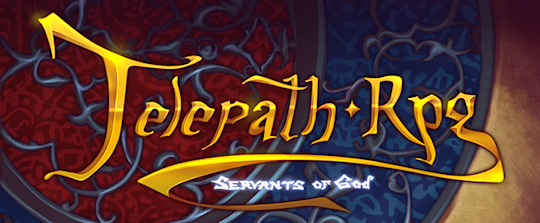I’ve tried to keep posts on this website limited to two topics: (1) the games I’m making and (2) general issues in game design. But sometimes real life intersects with game design in strange ways, and I’ve occasionally faced the temptation to post about current events. This spring, for instance, I was tempted to post about the democratic revolutions sweeping the Middle East, but I was afraid that it might come across as opportunistic. Likewise when a report came out that the U.S. Army was imposing spiritual training on its soldiers.
It’s not just that I wanted to avoid the appearance of exploiting current events for marketing purposes–I also had artistic reasons not to post about them. Art must contain its own message; it must speak for itself. If I have to tell people, outside of the game, what I’m trying to say in the game, that’s a tacit admission that I have failed to produce art that can stand on its own. If I tell people even just a part of what I’m trying to say, that indicates that I failed to impart that portion of my message clearly in the game. That, to my mind, is tantamount to artistic failure. And I’m not prepared to admit to failure yet. So I’ve kept my mouth shut.
But now we have this. And I cannot keep quiet any longer.
A game developer by the name of Amir Mizra Hekmati went missing for months after he flew to Iran to visit his grandparents this past August. It was later revealed that he had been arrested for creating games that allegedly advance a pro-U.S. agenda, as well as espionage. After secret proceedings and a highly suspect confession from Mr. Hekmati, Iran’s Revolutionary Court found him guilty of being “Corrupt on Earth and Mohareb (waging war on God).” He has been sentenced to death.
Now, I take all current events seriously–I have to live in this world, after all–but this one hits particularly close to home. The desire to censor game developers is seemingly universal. We see it in the United States. We see it in Germany. We see it in Australia. We see it in England. We see it in China. We see it in Brazil. But until today, I had never heard of any government anywhere sentencing a game developer to death for the ideas he chooses to express in his games. (I am going to proceed under the assumption that Mr. Hekmati was responsible for the content of the games he worked on–in reality, he might have had no involvement in those decisions whatsoever.)
There is a plot point I have long intended to add to Telepath RPG: Servants of God where the player is captured by the theocratic regime in Ravinale and put on trial before one of the acolytes, with all of the characters he has wronged over the course of the game showing up to testify against him. It would not matter what the player said or did in this sequence–he would be found guilty of crimes against God and sentenced to death, his right of review stripped from him due to his designation as an enemy of the state.
The basic setup of this scene is obviously inspired by a famous sequence from Chrono Trigger. However, I crafted the proceedings specifically to criticize Justice Roberts for his jaw-dropping dissent in Boumediene v. Bush, in which he insisted that a laughable show trial is an adequate substitute for habeas corpus, so long as the accused is an enemy combatant.
But now, life-imitates-art-imitates-life, and Iran has chosen to provide what is, in many ways, a much more direct analog. In fact, Iran’s behavior here mirrors several of the game’s major plot points–all it lacks is the popular revolution to topple the theocracy.
It says something very sad about the intellectual state of Iran’s government that they think it better to execute a man than to engage with his ideas. Does the government of Iran have no brain to think of a response? Does it have no mouth to speak it? Does it have only a fist at its disposal? By resorting to execution, the government of Iran has implicitly conceded that it is intellectually bereft, unable to win a simple battle of ideas. That is nothing short of pitiful.
Worse, by declaring Amir Hekmati guilty of “waging a war on God,” the Iranian government cloaks its intellectual impotency in the garb of religion. As far back as Aristotle, it has been widely accepted that good government depends upon the rule of law. The rule of law cannot exist without accountability for those charged with enforcing it; and accountability cannot exist where government officials are empowered to hide behind a mask of religiosity to excuse any arbitrary act they wish to undertake.
The megalomania of the Revolutionary Court’s sentence against Hekmati is simply stunning. He worked on one game mission which depicts a U.S. strike against an Iranian nuclear reactor, and another in which you get a chance to reenact the 1980 hostage rescue attempt in Tehran. From what I can tell, that is the extent of his offense. The only way to get from there to “waging a war on God” is to presume that the Iranian state represents God, with a mere portrayal of an attack on its nuclear reactors representing an attack on the divine. “I represent God.” It is hard to imagine a more presumptuous, arrogant, and convenient pretense for executing a human being.
In a grotesque way, this turn of events validates the importance of games. Games matter because they carry ideas. Games are so important that a government is willing to kill over them. Amir Hekmati now joins an exclusive group of luminaries such as Socrates and Salman Rushdie, whose ideas were deemed so offensive to the small-minded that these vicious little hobgoblins sought to make their lives forfeit. Unwittingly–indeed, witlessly–Iran’s leaders have all but declared a virtually unknown game designer suddenly Important.
In a very real way, they are right.





